Sources of information
Reliable and relevant sources that support our content.

Gestalt approach in organizational contexts
November 2025
The biggest challenges in teams today often arise, not from lack of knowledge and technical expertize, but from unnoticed disruptions in contact within daily collaboration: desensitization, deflection, projection, narcissism… . This is often a result of more deep organizational dynamics.
Last weekend, I facilitated a workshop within a four-year Gestalt psychotherapy training program, focusing on the application of Gestalt in organizational settings.
Although participants, hearing the word “organization” initially expected a boring, “classic lecture,” with PowerPoint and similar tools, we quickly shifted into something far more relevant for today’s teams: a live exploration of contact, group dynamics, creativity and psychological safety.
We co-created agenda, used games, experimentation, metaphor cards, bodywork and dialogue — because group and organizational systems learn most effectively through experience, not through linear information transfer.
But to experiment and to play, safety and trust are required. And these are not things you can impose — they must be built gently and with full respect to the system.
Very grateful to this beautiful small group of 10 participants who made it possible to happen – that had capacity to observe subtle processes that often remain invisible in larger organizational systems, even though they strongly shape outcomes.
Gestalt in organizations is not a “soft” approach. It is a value system and effective approach for working with complexity, relational dynamics, and the subtle processes that drive team effectiveness.
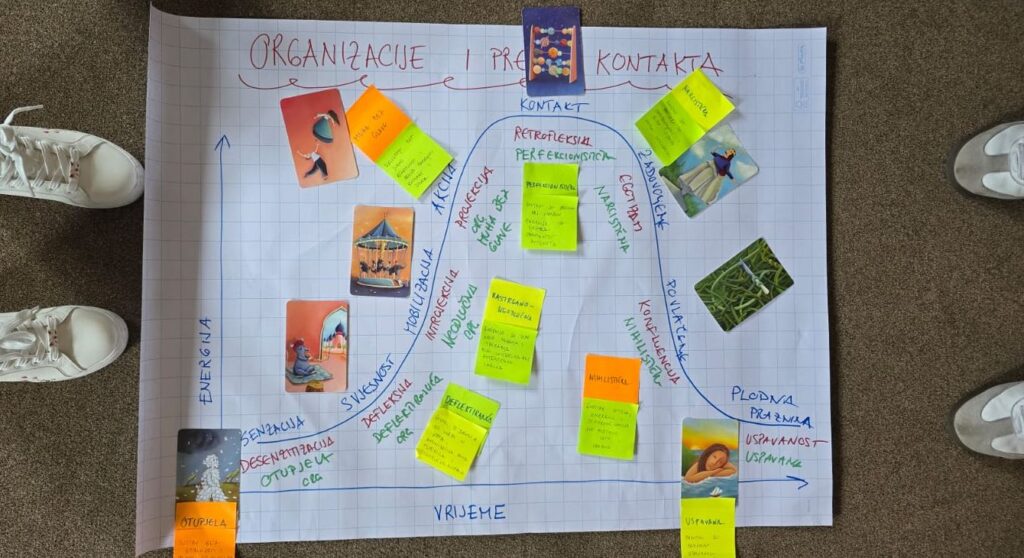
Empowering women in leadership through awareness and connection
October 2025
I am always inspired to see awareness turn into action, especially in the hospitality sector, to which I have been deeply attached through almost five years of managerial experience in the field of human resources management.
On Monday, I had a great reason to visit Dubrovnik. At the invitation of the Director of Human Resources at Hilton Imperial Dubrovnik, Zorica Duić, I held a workshop as part of the F&B Inclusion program. The program is dedicated to empowering women in leadership in the food and beverage sector.
Through the Gestalt approach, we explored how awareness of self, others and the situation (SOS model), together with understanding inner saboteurs (Positive Intelligence), can help women lead with more presence, clarity and balance.
What touches me again and again is the openness and courage of women who keep systems in action every day: when they connect through awareness and support, the space for change becomes real.
Thank you to the Hilton HR team, Zorica Duić and Anita Novak, and the entire F&B team, for the trust and space for such dialogue and development.
It is precisely such encounters that build a culture of inclusion and meaningful leadership.
Applying the principles of Gestalt therapy in coaching
The purpose of this article is to provide a concise overview of the application of some of the most significant principles of Gestalt therapy in coaching, a relatively new and insufficiently recognized method of professional development in Croatia. The first part of the article describes the definitions of coaching, its goals and the profile of experts who deal with this field. In coaching, the emphasis is on the development of the client’s professional self (e.g. on the development of business skills, on preparation for a new role, etc.), so it is necessary that the coach in the work process, in addition to the client, also focuses on the client’s organization. Successful coaching requires a range of psychological, therapeutic, consulting and business knowledge and skills. In the second part of the article, it is described how classic terms from Gestalt therapy, such as field, figure and background, awareness, paradox of change, presence and contact, contribute to understanding the coaching process and how a coaching expert, educated in the field of Gestalt therapy (Gestalt coach), supports the change and development of the client. Gestalt and coaching, above all, share a view of the client as a healthy, complete person, who, with adequate support from the environment, is capable of responding creatively to the demands of the situation. The prerequisite for change is the client’s awareness of the situation they are in and their acceptance of it as it is, which leads to the release of energy and readiness for new choices. Gestalt coaching work is process-based and based on dialogue, which the coach encourages through various techniques such as questioning, sharing observations, experimentation, and, above all, through his or her constant, authentic presence.
From awareness to change
It’s certainly not the prettiest photo, but I like it :). With its dynamics, it conveys a bit of the atmosphere from the #learningbydoing conference in Šibenik and the lecture on the topic of Gestalt in organizations: from awareness to change that I held on Friday, April 11. The day was like a fantasy, sunny, cheerful, with an invitation to travel and research, and so was the team at the conference.
It was wonderful for me to feel a part of the atmosphere, to be in the circle of experts in the field of human resource management interested in new insights and areas, I’m just sorry that I couldn’t stay longer.
Gestalt is at the same time a very serious and very fun approach, sometimes difficult to convey and at the same time easy to feel. At the heart of the Gestalt approach in working with organizations are awareness, presence, using oneself (the practitioner) as an instrument and co-creating the process of change with the client.
In HR, the most difficult part is often managing “wicked” problems, which are not actually problems but constant dilemmas, and what we would say in Gestalt, polarities.
How to manage polarities: cooperation – competition, stability – research, financial results – employee satisfaction, are some of the topics of the lecture.
And one of the most beautiful feedbacks came from a colleague who wrote to me “Thank you for the wonderful lecture – warm, calming, thoughtful, with reflection”. Thank you, Dijana:)
Thank you again Jasna Rilović for the invitation, see you soon:)
#gestalt

Craft & Science & Art of Lifestyle Medicine
It was a pleasure to participate today at the Craft & Science & Art of Lifestyle Medicine congress. Congratulations to my colleague Antonia Peroš, who attracted fellow psychologists and psychotherapists to participate in this extremely important topic that promotes interdisciplinarity and a holistic approach to humanity.
At the Women’s Health panel, with the great nutritionist Iva Tokić and moderator Ivana Kolcic, we looked at the topics of self-improvement, individualized approach to women, and the need to first and foremost understand the situation, opportunities, and possibilities of women who turn to us for support from different angles.
From a psychological perspective, some of the most common topics that women face are related to their relationship with themselves, understanding and expressing their own needs and priorities, and the constant search for authenticity. Adaptation to different periods of life, physical and hormonal changes that they bring, such as puberty, motherhood, menopause, and old age, is of great importance.
Many of us grew up with a lot of messages about how to live, how to behave, a lot of musts and needs that at one stage or another in life have become dysfunctional for us. Becoming aware of how we experience and express emotions, especially “energizing” ones like anger and rage, and generally understanding the way our feelings affect our overall functioning is extremely important for an overall sense of well-being.
In the daily juggling, it is useful to find your own “little corner of healthy madness”, a physical and psychological place that is only ours and where we are completely ourselves.
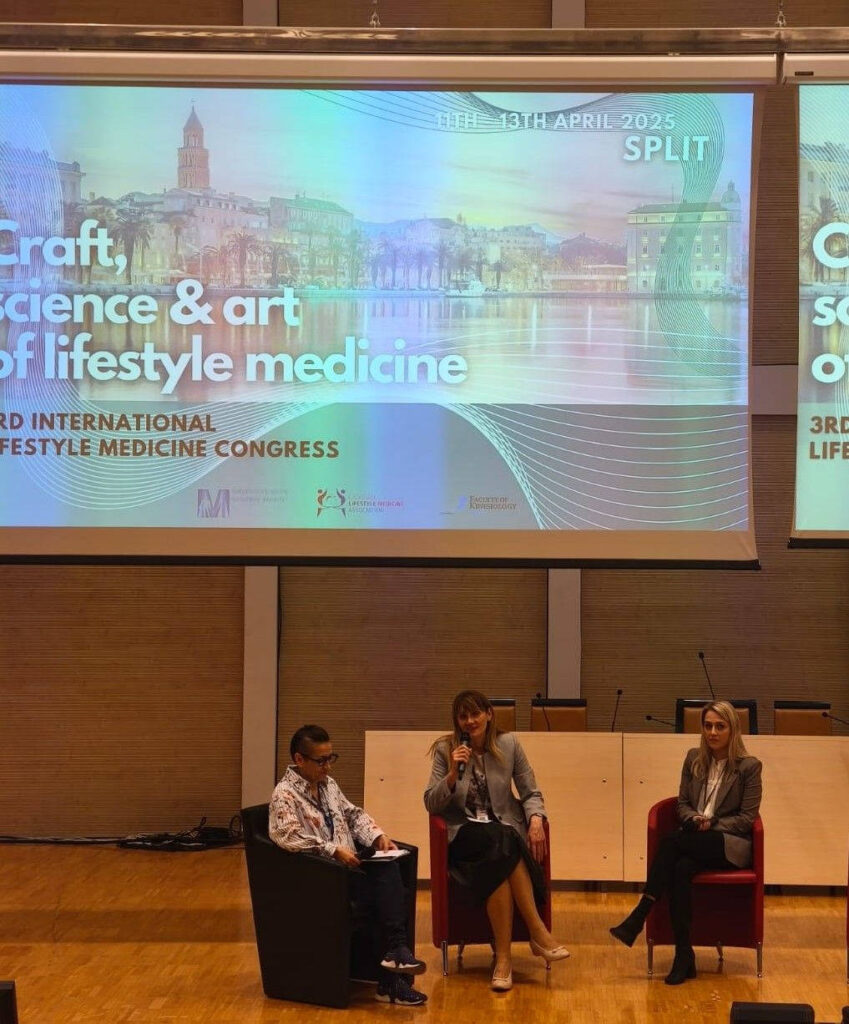
When an employee needed to be given bad news
The director had to resign, took a whiskey and invited one by one’: a psychologist from Split analyzes difficult decisions and advises both sides’
In a large number of situations, such news was probably not communicated to the employee tactfully, which certainly increased his psychological trauma. However, the unfavorable situation in which, unfortunately, a large number of citizens found themselves also intrigued Split psychologist and psychotherapist Sandra Čanić, who wrote an expert article about it.
Although, of course, the person receiving and the person resigning cannot be in the same shoes, the psychologist believes that communicating negative news also causes great stress. Therefore, she offers valuable advice on how to receive, but also communicate, bad news.
I received it myself
– I have had a dozen different bosses so far, collaborated with ten times as many managers and led several teams. I have experienced five major reorganizations in the companies I have worked for…
Along with many good moments, I remember, of course, those others when I had to break bad news to an employee. I received it myself at least once…
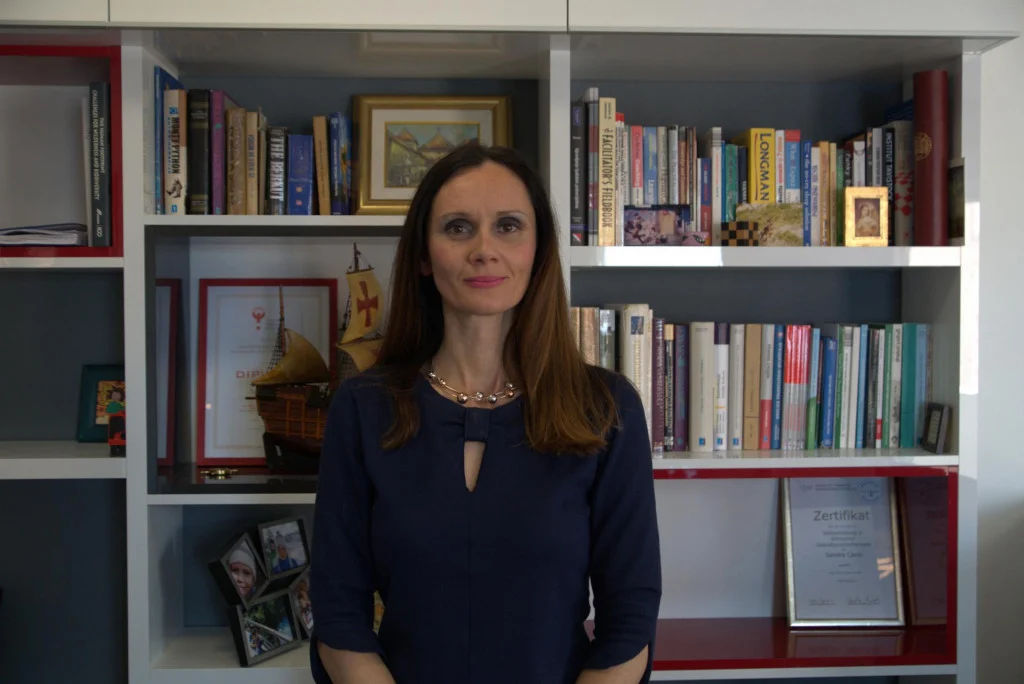
Your partner in development
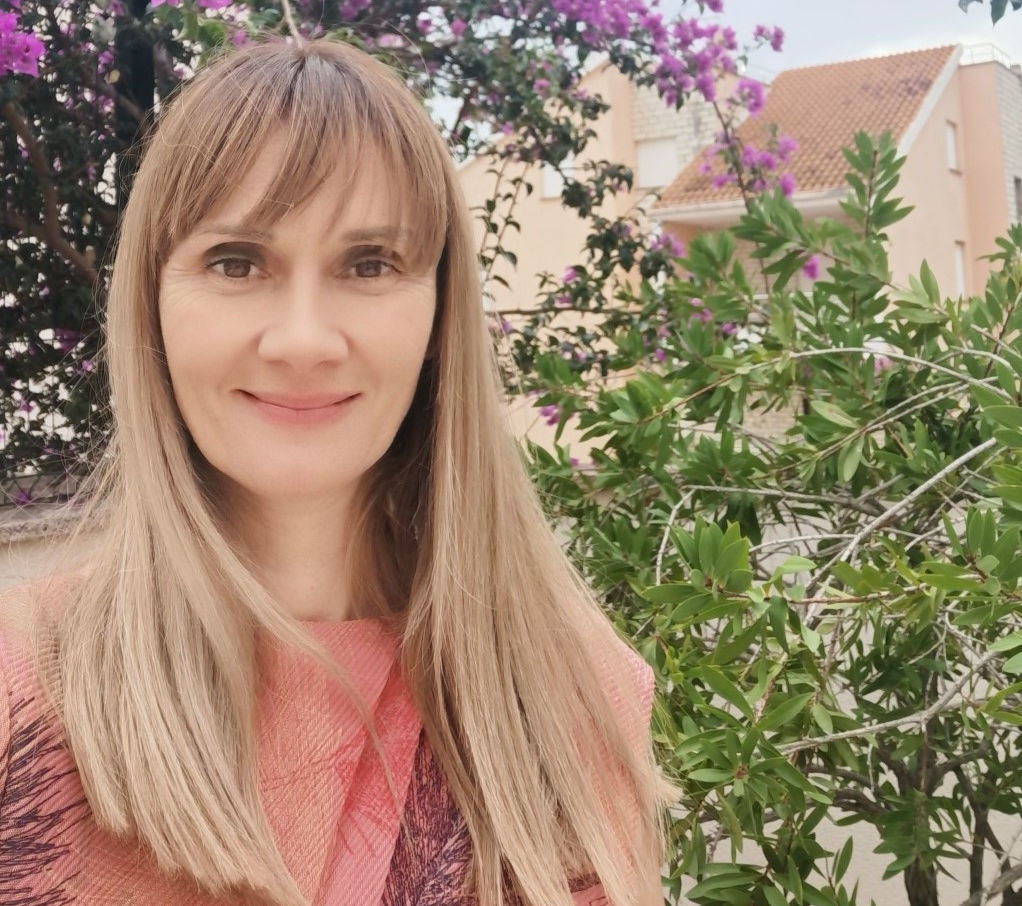

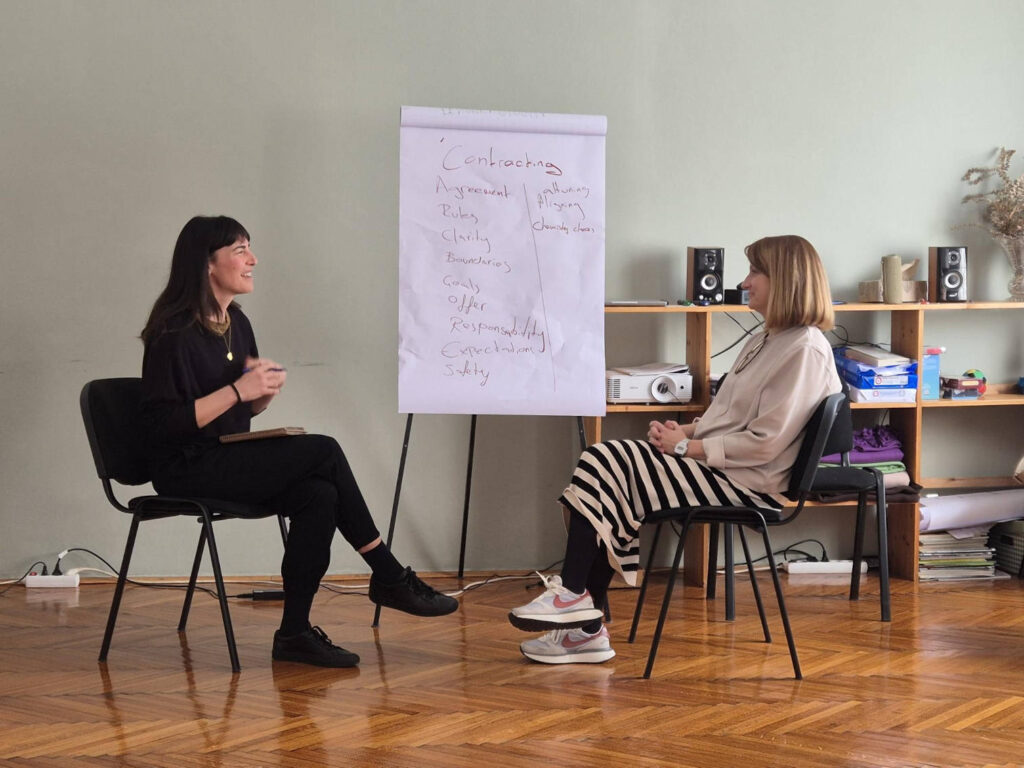
Gestalt Coaching was the topic of the last module of the second generation of the Gestalt Practitioner in Organizations (GPO) program, which we held in early April.
It has been practiced in organizational settings for several decades, and it represents the use of the principles and premises of Gestalt therapy in coaching as a method of professional development.
In addition to discussing the concept and principles of coaching, we practiced presence, the phenomenological approach, and the use of creative techniques.
In practice, we often do not distinguish between observations and our fantasies, ideas. We consider our fantasies about what is happening with another person and in our environment to be truths. The phenomenological approach that advocates observing the obvious, blocking our own assumptions, and active curiosity is embedded in Gestalt Coaching.
A true encounter can begin at the point where we begin to distinguish our experience from the experience of another person.
In this photo are our brave participants Sanja Petek Mujačić and Isa Zivanovic, who demonstrated one such encounter.
As always, it was particularly inspiring to lead this module with Angelika B., we will continue in May!
#gestalt #coaching #organizationaldevelopment